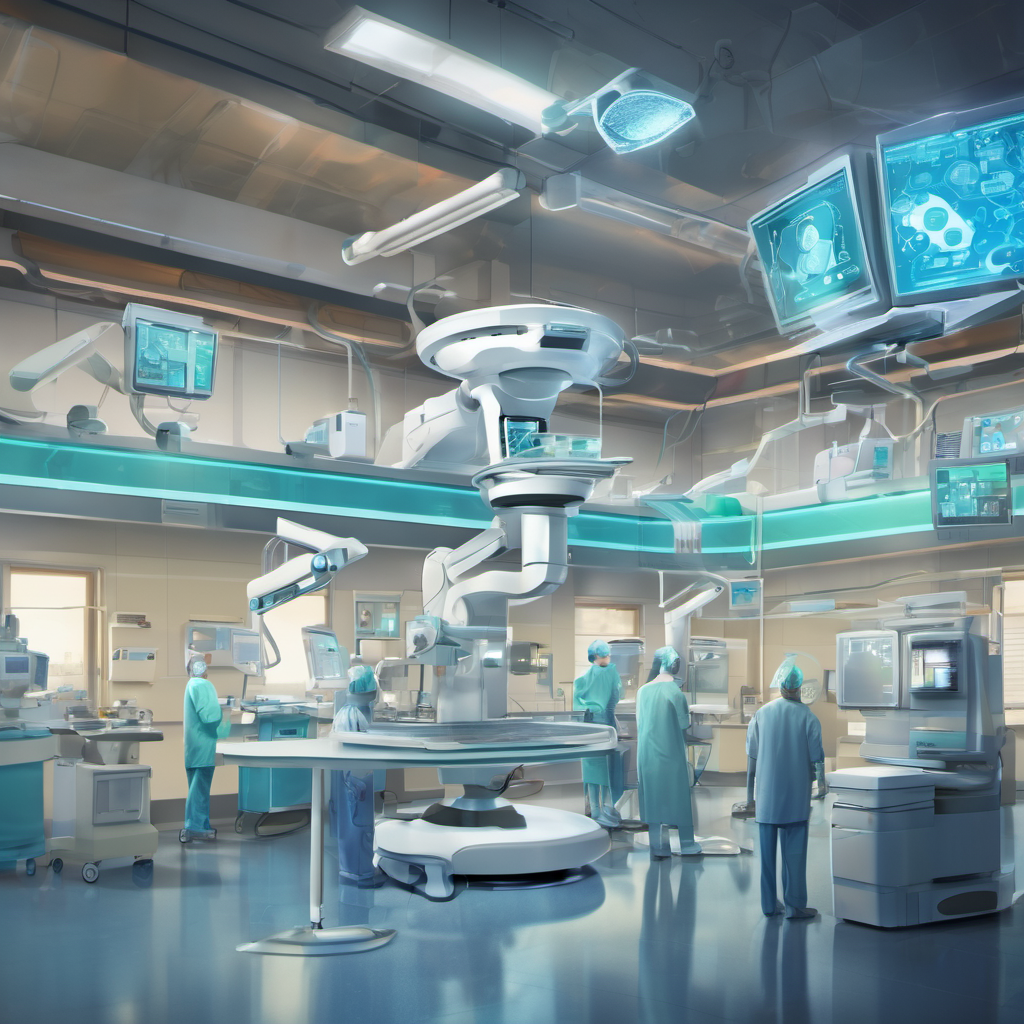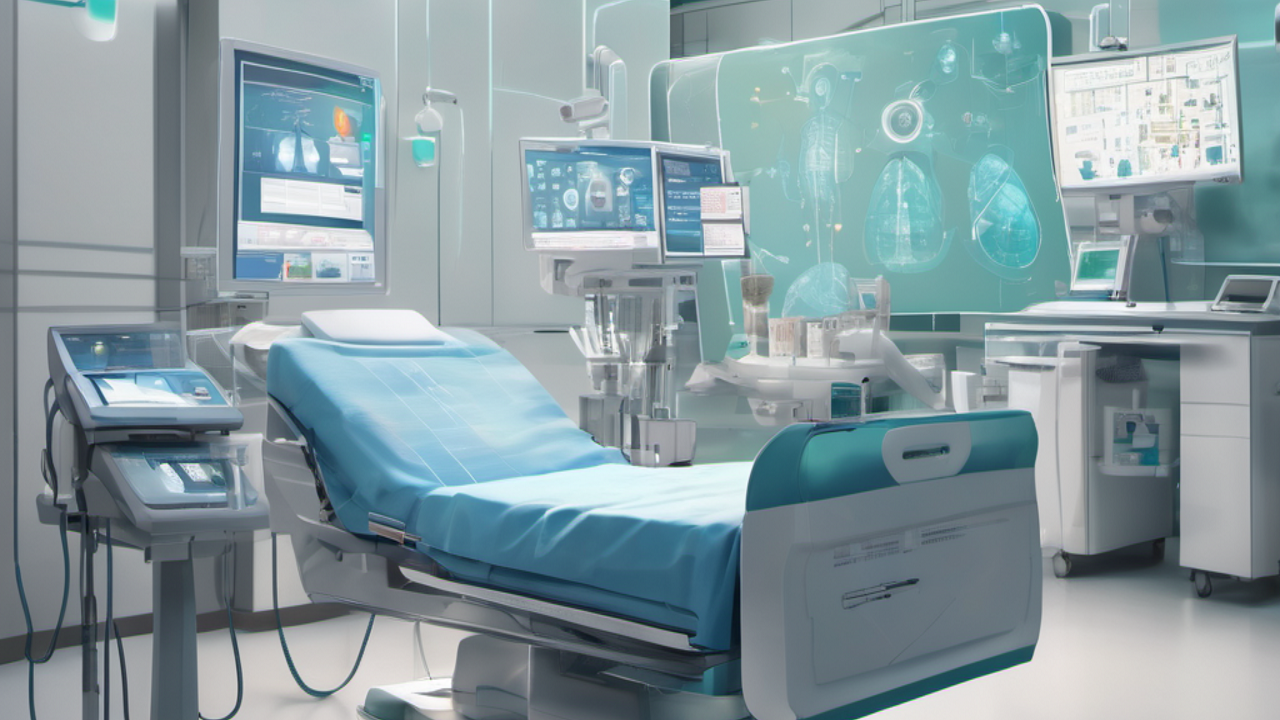How AI used in Healthcare: Diagnosis, Treatment, and Drug Discovery
In the healthcare industry, artificial intelligence, ( AI used in healthcare), has become a disruptive force that is transforming many facets of patient care, including diagnosis, treatment, and medication development. Artificial Intelligence (AI) is revolutionising healthcare delivery by utilising sophisticated algorithms and machine learning techniques. This is creating previously unheard-of prospects for efficiency, accuracy, and innovation in the medical field.
Introduction to AI used in Healthcare
Artificial Intelligence (AI) technologies, such as computer vision, natural language processing, and machine learning, are being progressively incorporated into global healthcare systems. These technologies extract useful insights and aid in clinical decision-making by analysing enormous volumes of medical data, including genetic sequences, imaging scans, and patient records.

AI Diagnosis: Revolutionising AI used in Healthcare
Enhancing Diagnostic Accuracy
AI-powered diagnostic tools excel in interpreting complex medical data with remarkable accuracy, aiding healthcare providers in identifying diseases and conditions at an early stage.
- Unearthing hidden patterns: AI can analyze vast amounts of medical data, including patient history, imaging scans, lab results, and even genetic information. This allows them to identify subtle patterns and correlations that human doctors might miss. For instance, AI can detect anomalies in mammograms or X-rays with a higher degree of accuracy than traditional methods.
- Early disease detection: By finding these hidden patterns, AI can aid in the early detection of diseases like cancer or heart disease. Early detection is crucial for successful treatment and improved patient outcomes. AI can also analyze large datasets to identify patients at high risk of developing certain conditions, allowing for preventive measures.
- Improved diagnostic accuracy: AI algorithms are constantly learning and evolving as they’re exposed to more data. This ongoing learning process can lead to improved diagnostic accuracy over time. Studies have shown that AI can achieve accuracy rates comparable to, or even exceeding, human experts in some areas.
- Streamlining workflow: AI-powered diagnostic tools can automate some routine tasks, freeing up doctors’ time to focus on more complex patient care. For example, AI can pre-analyze scans and flag potential abnormalities, allowing doctors to prioritize cases that require their immediate attention.
Here are some real-world examples of AI in action:
- AI-powered imaging analysis tools are being used to detect cancers and other abnormalities in medical scans with high accuracy.
- AI-based chatbots can screen patients for symptoms and provide preliminary diagnoses, reducing the burden on primary care physicians.
- AI algorithms are being developed to analyze genetic data and identify patients with a predisposition to certain diseases.

Streamlining Processes
Automation of routine tasks, such as image analysis and patient triaging, reduces administrative burden and allows medical professionals to focus more on patient care.
Reduced administrative burden:
- Repetitive tasks: Imagine automating tasks like appointment scheduling, referral generation, and insurance pre-authorization. This frees up nurses and administrative staff to focus on more complex tasks and patient interaction.
- Data entry and reports: Automating data entry from medical devices and electronic health records (EHR) reduces errors and saves time spent on manual data compilation. This allows doctors to spend less time on paperwork and more time analyzing patient data and making informed decisions.
Improved patient experience:
- Faster turnaround times: Automated systems can analyze test results, schedule follow-up appointments, and send medication reminders, leading to quicker treatment and improved patient outcomes.
- Enhanced communication: Automated appointment confirmations, medication reminders, and educational materials can improve patient communication and adherence to treatment plans.
Focus on complex care:
- More time for patients: By automating routine tasks, doctors can dedicate more time to one-on-one patient consultations, building stronger doctor-patient relationships and providing more personalized care.
- Early intervention: Automated analysis of medical images, like X-rays or MRIs, can help detect abnormalities earlier, allowing for faster diagnosis and treatment.
Here are some specific examples of automation in healthcare:
- Robotic process automation (RPA): Software robots can automate administrative tasks like data entry, form filling, and report generation.
- Artificial intelligence (AI): AI algorithms can analyze medical images, identify patterns, and assist with diagnosis or treatment planning.
- Machine learning (ML): ML algorithms can learn from vast amounts of medical data to predict patient risks, personalize treatment plans, and streamline patient triage.

Early Detection of Diseases
Artificial intelligence (AI) systems can identify illnesses in their early stages and enable timely therapies that improve patient outcomes by analysing tiny trends and variations in patient data.
AI in Treatment: Personalized Medicine
Tailored Treatment Plans
AI systems examine patient information, including as genetic profiles and medical records, to create personalised treatment regimens that are best suited to each patient’s unique requirements and traits.
Predictive Analytics for Patient Outcomes
Predictive analytics models forecast patient responses to specific treatments, helping healthcare providers anticipate complications and adjust treatment strategies accordingly.
Drug Response Prediction
AI algorithms predict patient responses to medications, enabling the selection of the most effective and least harmful treatments while minimizing adverse drug reactions.

AI in Drug Discovery: Accelerating Innovations
Target Identification and Validation
AI-driven platforms expedite the identification and validation of therapeutic targets, facilitating the development of novel drugs for various diseases.
Drug Repurposing
AI algorithms analyze existing drug databases and biomedical literature to identify potential drug candidates for repurposing, accelerating the drug discovery process.
Speeding Up Clinical Trials
AI-powered clinical trial platforms optimize trial design, patient recruitment, and data analysis, reducing the time and cost required to bring new drugs to market.
Ethical Considerations in AI-Driven Healthcare
Data Privacy and Security
Protecting patient data from unauthorized access and ensuring secure data transmission are paramount concerns in AI-driven healthcare systems.
Bias in Algorithms
Mitigating bias in AI algorithms is essential to ensure equitable healthcare delivery and prevent disparities in treatment outcomes across different demographic groups.
Patient Autonomy and Informed Consent
Respecting patient autonomy and ensuring informed consent are critical when deploying AI technologies in healthcare, particularly in sensitive areas such as diagnosis and treatment.
Future Implications and Challenges
Integration with Traditional Methods
Balancing the integration of AI technologies with traditional medical practices requires careful consideration of workflow dynamics and clinical decision-making processes.
Regulatory Frameworks
Developing robust regulatory frameworks is essential to govern the use of AI in healthcare and address concerns related to safety, efficacy, and ethical implications.
Skills and Workforce Adaptation
Investments in training healthcare professionals in AI technologies and data analytics are necessary to ensure the effective adoption and utilization of these tools in clinical settings.
Conclusion
AI holds immense promise in transforming healthcare delivery, from enhancing diagnostic accuracy and personalized treatment to accelerating drug discovery processes. However, realizing the full potential of AI in healthcare requires addressing ethical considerations, ensuring regulatory compliance, and investing in workforce development. By leveraging AI technologies responsibly and ethically, healthcare stakeholders can usher in a new era of patient-centered care and medical innovation.
FAQs
How does AI improve diagnostic accuracy in healthcare?
AI algorithms analyze medical data with precision and identify patterns indicative of diseases, enabling early and accurate diagnoses.
What are the ethical concerns surrounding AI in healthcare?
Ethical concerns include data privacy, algorithmic bias, and ensuring patient autonomy and informed consent in the use of AI technologies.
How does AI contribute to personalized medicine?
AI analyzes patient data to tailor treatment plans and predict individual responses to medications, optimizing patient outcomes.
What challenges need to be addressed for widespread adoption of AI in healthcare?
Challenges include regulatory frameworks, integration with traditional methods, and ensuring healthcare professionals are adequately trained in AI technologies.
What role does AI play in drug discovery?
AI accelerates drug discovery processes by identifying therapeutic targets, repurposing existing drugs, and streamlining clinical trials.

2 thoughts on “How AI used in Healthcare”